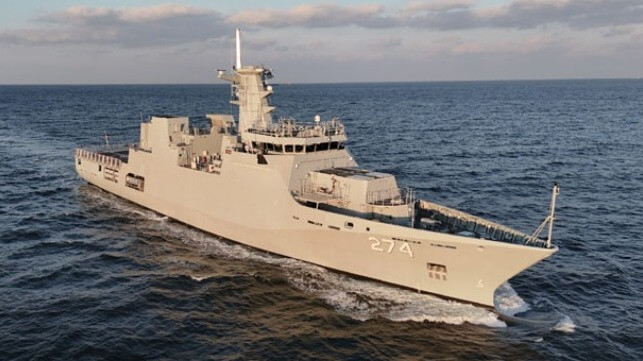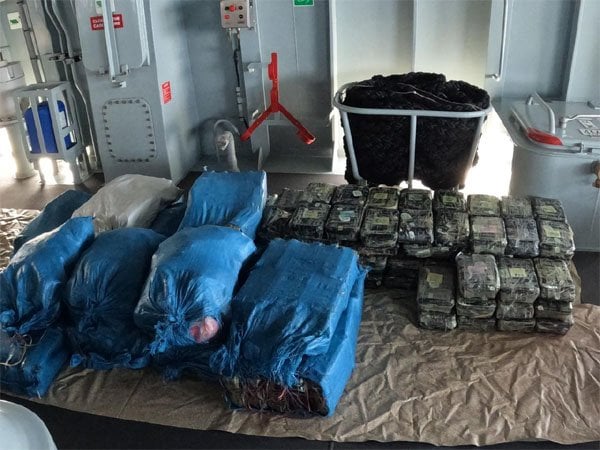Continuing Interceptions of Houthi Contraband Cargoes Highlights Weaknesses

The recent increase in successful interdictions of cargoes being smuggled to the Houthis continues. A closed examination of the news appears to show the hand of Unit 190, the export logistics unit of the Islamic Revolutionary Guard Corps (IRGC), in most of these interceptions, versus a combined effort of the opposition forces to the Houthis.
On October 18, the Pakistani corvette PNS Yarmook (F271) intercepted the first of two consignments of crystal methamphetamine in the Arabian Sea. The first dhow had two tons aboard, the second, intercepted two days later, had 350kg and also 50kg of cocaine aboard. The combined street value of the consignments was estimated by Combined Maritime Forces to be over $972 million. PNS Yarmook was part of Combined Task Force 150’s Operation Masmak, currently commanded by Commodore Fahad Al Joiad of the Royal Saudi Naval Forces, and which is also deploying French, Spanish, and U.S. naval assets.
A seizure of this size and value suggests that a state actor may have been involved. The IRGC is known to use shipments of drugs as a means of subsidizing Axis of Resistance allies, with forces such as the Houthis organizing the onward shipments of drugs to consumer markets and keeping the proceeds of sales.

Portion of the drugs seized by the Pakistani Navy in October (CTF 150)
These latest seizures were only the latest in a series of efforts. The opposition forces, including the Southern Transitional Council (STC), highlighted some of their successes, both with seizures of drug smuggling as well as arms shipments.
On October 22, a court in Mukalla, in Hadramawt province of Yemen, sentenced six Iranians to death. They had been crewing a dhow intercepted at sea and brought into Mukalla, which had been carrying a three-ton cargo of hashish and crystal methamphetamine with a street value of $6,000,000. Political control of Mukalla is disputed, but the interception is likely to have been carried out by STC-affiliated forces. The court in Mukulla is controlled by the internationally recognized government.
Earlier this month, the Giants Brigade, affiliated to the STC, made another interception at sea off Al Bahiyah, on the Lahj coast west of Aden. On board the intercepted dhow was a mixed cargo of prescription medicines, as well as Iranian-manufactured anti-tank missiles and components for drones.
The dhow had loaded its cargo at Bandar Abbas, where the IRGC’s Unit 190 has dockside warehousing. Giants Brigade interrogators ascertained that the eight-strong crew were known soldiers in a Houthi-controlled smuggling operation.
The continuing increase in interceptions of cargoes en route to the Houthis provides further evidence that STC-sponsored militias, payrolled by the UAE, are being provided with higher-quality intelligence. Because the interceptions are made off both the Red Sea and the Gulf of Aden coastlines, the source of intelligence is not a local leak. If the smuggling is being coordinated by the IRGC Qods Force Unit 190, then a breach of security, either at the Iranian or the Houthis end of the communications chain, would account for multiple interceptions in different places.
Leaders in Iran and the Houthis are presently displaying a high degree of nervousness about their own personal safety, and are not, for example, attending funerals and political meetings which they have been accustomed to, and are expected to attend. This nervousness has been particularly apparent in Sana’a, where Houthi forces detained 20 UN local and international staff and confiscated radio equipment necessary for aid operations, a situation resolved on October 20 once again by Omani intervention. In recent days, the Houthis have also raided the offices and Danish and Norwegian aid distributors and of Oxfam, all in the continued but apparently fruitless search for the source of security leaks.
